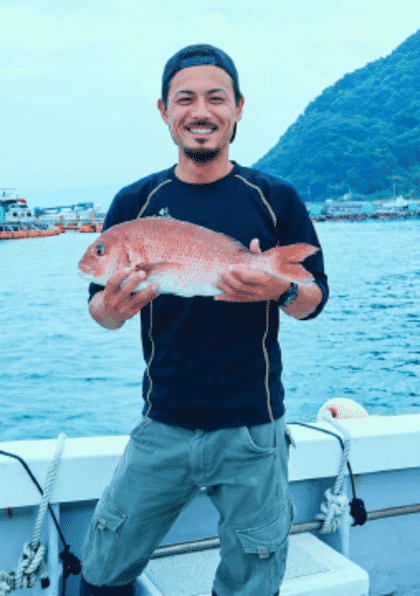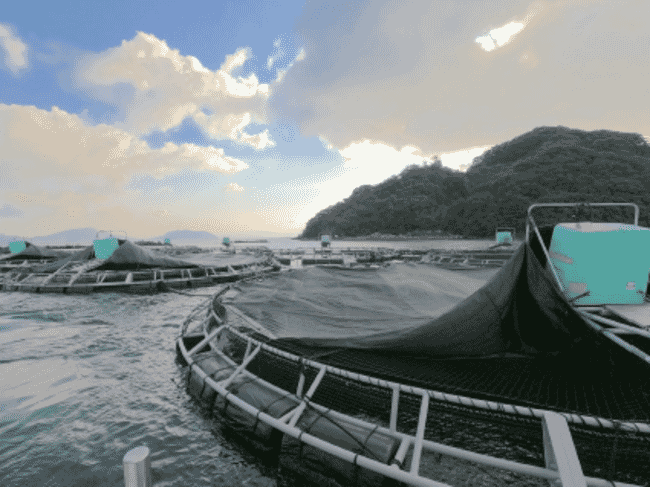
© Urata Suisan
Red sea bream, known as Madai in Japan, have long been used in Japan to mark celebrations. Kumamoto boasts the second highest production volume of farmed red sea bream in Japan, with roughly 10,000 tonnes produced annually - accounting for more than half of the prefecture’s farmed fish production volume.
Furthermore, the prefectural government promotes an aquaculture best practices certification process for its aquaculture producers to ensure locally produced farmed fish meet high quality and safety standards. This certification includes practices such as: use of domestically sourced juveniles, record keeping of farm operations, and setting strict guidelines for periodic inspections of chemical products used by farms.
In addition to implementing these practices, Kumamoto Seawater Culture Fisheries Cooperative Association and Urata Suisan have decided to take steps to turn to a more sustainable and responsible production of their farmed red sea bream. By launching an AIP, they set their sights on obtaining ASC certification next year in order to further differentiate their products in the domestic and international markets.
Kumamoto Seawater Culture Fisheries Cooperative Association conducted an ASC pre-assessment with Urata Suisan’s red sea bream farms in 2019 and Seafood Legacy developed an AIP workplan based on the pre-assessment results, leading to the launch of this collaborative effort to improve Urata Suisan’s red sea bream aquaculture to reach ASC certification by 2021. Improvements to be implemented through the AIP include monitoring of environmental impacts of net cages to the surrounding ecosystem and habitats, ensuring sustainability of fish feed and smolt, management of diseases and parasites, and development of social responsibility policies and guidelines.

© Urata Suisan
Masaki Urata, CEO of Urata Suisan, said: “We operate our farms in the warm waters of the Yatsushiro inland sea off the coast of Goshoura Island in Amakusa, Kumamoto prefecture. By raising our fish from smolt using complete pelleted feed we provide farmed fish with stable quality and management year-round. By improving on environmental sustainability, social responsibility and traceability through this project, our goal is to raise the possibility of aquacultures and help further develop the industry for the future.”
Shunji Murakami, Vice President and COO of Seafood Legacy, Co said: “We believe that the establishment of Japan’s first red sea bream AIP with the goal of acquiring ASC certification – its standards internationally recognized as a rigorous guideline for responsible aquacultures -- will not only heighten the domestic and international market competitiveness for the project’s participants, but will also contribute to the local economy as well as add to the growing efforts being implemented to meet the UN Sustainable Development Goals. We strive for this project to be a positive model that will lead to prosperity for the participants and its region, and contribute to the growth strategy for the domestic aquaculture industry in Japan.”


